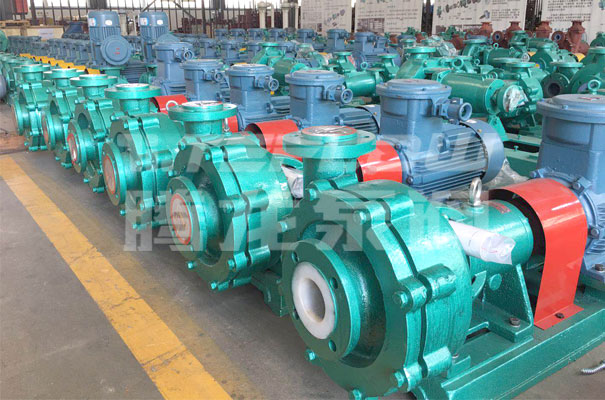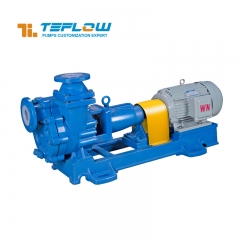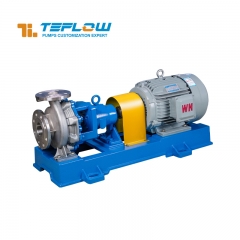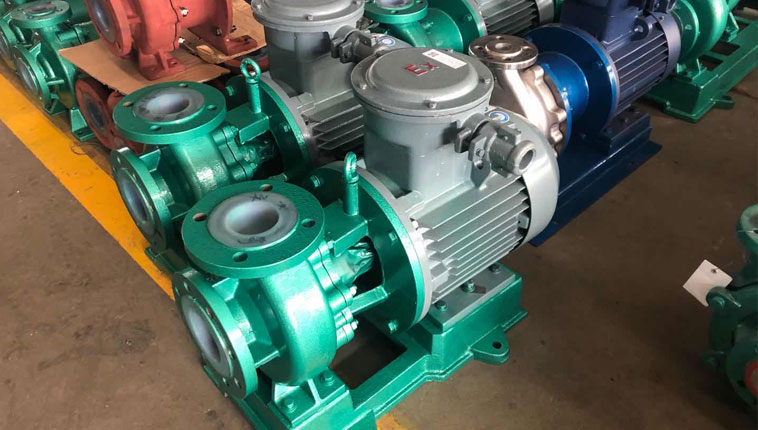Phosphoric acid slurry is a common chemical raw material used in the production of fertilizers, pesticides, and more. When it comes to transporting phosphoric acid slurry, selecting the right pump is crucial for ensuring efficient transportation and reducing energy consumption. This article will focus on discussing the key factors to consider when choosing a pump for transporting phosphoric acid slurry.
1.Corrosion Resistance: Phosphoric acid slurry is highly corrosive, making the selection of a pump with excellent corrosion resistance essential. Common pump materials for handling corrosive substances include stainless steel, high-alloy steel, and plastics. These materials can withstand the corrosive properties of phosphoric acid slurry. For more demanding applications, such as stronger corrosion resistance, special alloys or ceramics may be considered.
2.Particle Conveying Capability: Phosphoric acid slurry may contain solid particles, making it necessary to select a pump with good particle conveying capability. For larger particles, centrifugal pumps or peristaltic pumps are suitable choices as they can handle larger particle sizes. For smaller particles, centrifugal pumps or submersible pumps are preferred as they are less prone to clogging during transportation.
3.High Efficiency and Energy Consumption: Improving transport efficiency and reducing energy consumption are crucial goals when transporting phosphoric acid slurry. Selecting a pump with high efficiency and low energy consumption is important. Centrifugal pumps are a common choice for high-efficiency pumps, offering good performance and energy efficiency. Additionally, positive displacement pumps and axial flow pumps are also suitable for transporting phosphoric acid slurry efficiently.
4.Sealing Performance: The sealing performance of the pump is vital during the transportation of phosphoric acid slurry. It directly affects the safety and environmental protection of the pump. Choose a pump with excellent sealing performance to prevent leaks and spills. Common sealing methods include packing seals and mechanical seals. Select the appropriate sealing method based on specific requirements.
5.Maintenance and After-Sales Service: Consider maintenance requirements and the availability of after-sales service when choosing a pump for transporting phosphoric acid slurry. Opt for reputable manufacturers with a good track record and comprehensive after-sales service. Regular maintenance and upkeep of the pump are necessary to ensure its long-term stable operation.

When selecting a phosphoric acid slurry pump, important factors to consider include corrosion resistance, particle conveying capability, efficiency and energy consumption, sealing performance, and maintenance and after-sales service. By taking these factors into account, one can choose the most suitable pump type, improve transport efficiency, reduce energy consumption, and ensure smooth and efficient operations. Ultimately, the right pump selection will positively impact production efficiency and environmental protection.





 +86 18130251359
+86 18130251359 teflowpumps@tlpumps.com
teflowpumps@tlpumps.com











 +86+0563-5093318
+86+0563-5093318
